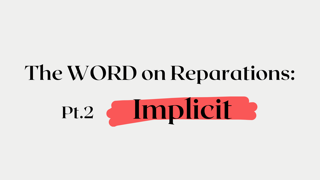Implicit. As I reflect on my time at the College of William and Mary, I often ponder over the sleek, implicit ways that discrimination has held me in its clutch. Similar to the serpent in the Garden of Eden, it slithers in and feeds off the complex conditioning of one’s ignorance. Despite it often being invisible, discrimination is an ominous force that you always know is there, no matter how much others attempt to deny its existence.
Freshman year, I was ignorant. I was exultant to be in a place where our founders’ presence was felt, where their names echoed among the ages. I went from my home community — where gunshots rang out like New Year’s Eve on the daily — to a community where life-altering opportunities were at my fingertips. It was as though I belonged to two worlds, but never fully belonged to either. At first glance, the College seemed capable of anything but mal-intent. Despite the grandeur status that the College held, day-by-day I began to notice things the College neglected to show me during my acceptance visit. I realized that just my presence among the campus would make ole’ Thomas Jefferson and James Monroe turn over in their graves, much less how their heads would have been blown had they heard the music that blasted from my headphones — Stevie Wonder to India Arie — while I walked the grounds that they once called home.
As I matured, I began to hear the subtle melody of discrimination that was playing — almost inaudible, but always there. Even the most mundane tasks became stained by underlying tones of bias and implicit racism. I’ve heard it from those who claim to be color blind, ultimately denying my Blackness to avoid uncomfortable conversations. I’ve heard it from those who claim to be “allies,” yet only advocate when convenient. I’ve heard it from those who claim that I’m only here because of affirmative action, not my grit and academic pertinacity.
More opportunities presented themselves to me on campus — conducting research in the public policy department, speaking frequently with Rector Littel and President Rowe and hosting the annual Dr. Martin Luther King Commemoration Ceremony. These opportunities were inconceivably amazing chances for me to better myself and the world around me. It was when I spoke at the annual Charter Day dinner that implicit discrimination came to a crescendo.
At the annual Charter Day dinner, I was invisible. No one knew me. No one knew my name. No one knew my face. I didn’t have an ounce of deference in that room full of old money and big shots of the College — lawyers, doctors, bankers, politicians, entrepreneurs and even pastors — their movements all aristocratic and pompous. All alien to me, just as I could tell I was alien to them.
My demeanor stolid, I ensured I spoke with fervor and was fastidious in my vernacular — understanding I was not bound by what I said, but rather the repercussions of the words. In the speech, I told the story of the other world to which I belonged; the world I felt somewhat estranged from, especially in the room full of the College’s old money and hierarchical system. Ironically, the audience gave a standing ovation to my speech that described the overcoming of my struggle, even though it was something they could never relate to. This made me wonder: were they applauding my truth or applauding themselves for giving this nappy-headed Black boy an opportunity to tell his truth? It wasn’t until they heard me speak — the sophistication of my words and intellect — that I stopped being opaque and became visible to them. After the dinner I received emails, cards, letters in the mail, even further opportunities — only after when they heard the eloquence with which this Black man spoke.
My ambition was blinding. I didn’t recognize that the opportunities I received were innately linked to the potential exploitation of my talents and the color of my skin. Aware of this now, I refuse to be tokenized or viewed as a mere ambassador of this College; the same College that, 100 years ago, wouldn’t have given me the opportunity to be here, never mind tell my truth in front of an audience of rich white folk. I no longer make others comfortable at the expense of my own comfortability — it’s crippling. I wear my durags in the dorm around my white counterparts, blast my Donny Hathaway albums with cocoa butter aroma in the air, and make assertions as opposed to mere suggestions in meetings in order to keep William and Mary’s “acclaimed” hierarchy on its toes. I now unapologetically exist.
This form of discrimination is the most dangerous because it’s the most deceitful, like an ominous shadow behind you. To describe it in one word: implicit.
Alton Coston III ‘23 is studying public policy and Africana studies at the College. He currently serves as the president of the African–American Male Coalition, is a winner of the Hulon Willis Association Memorial Scholarship, and conducts research in the government department. He also serves on the Highland-Student Advisory and Reparation Committees. Email Alton at acoston@email.wm.edu.





























